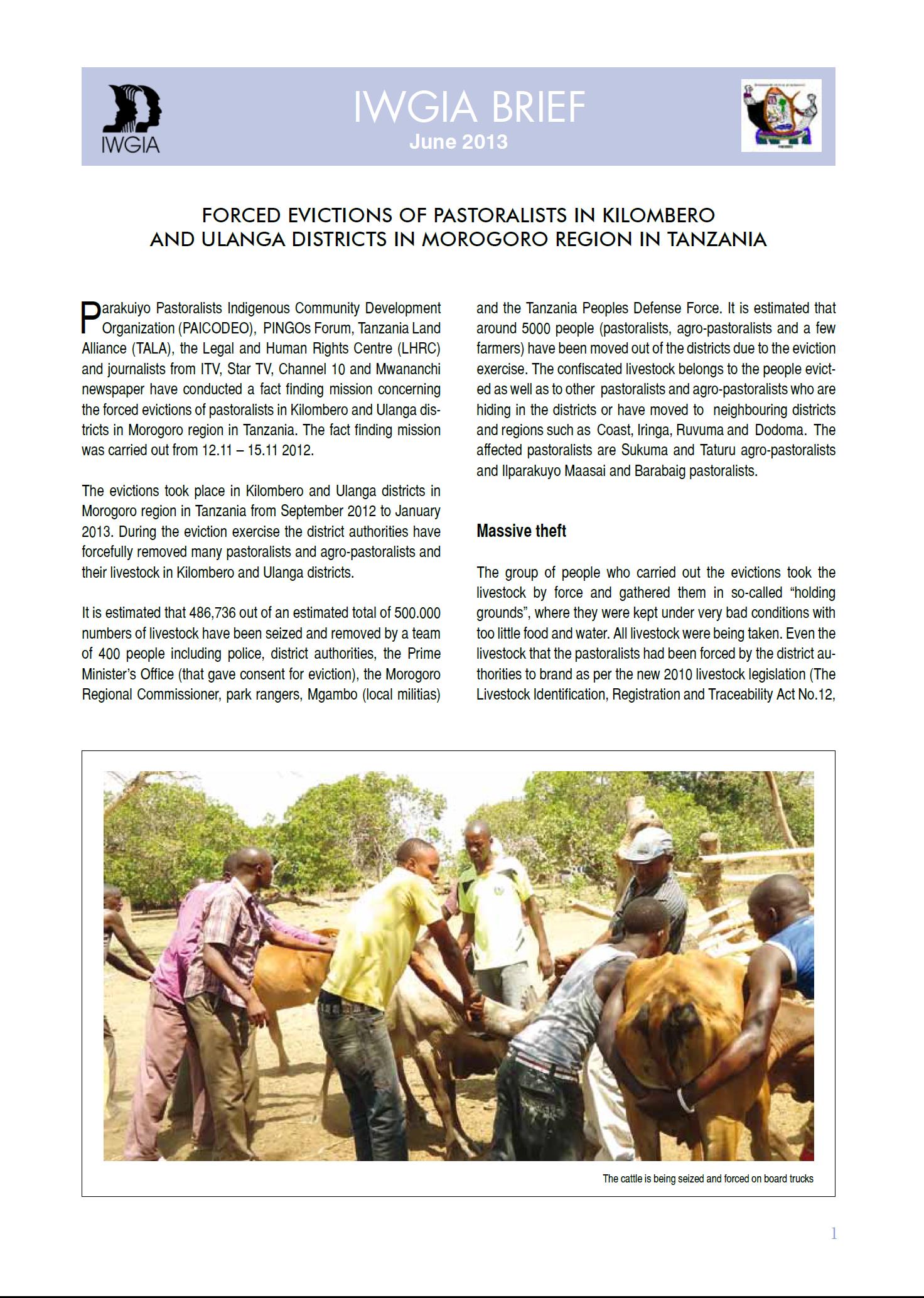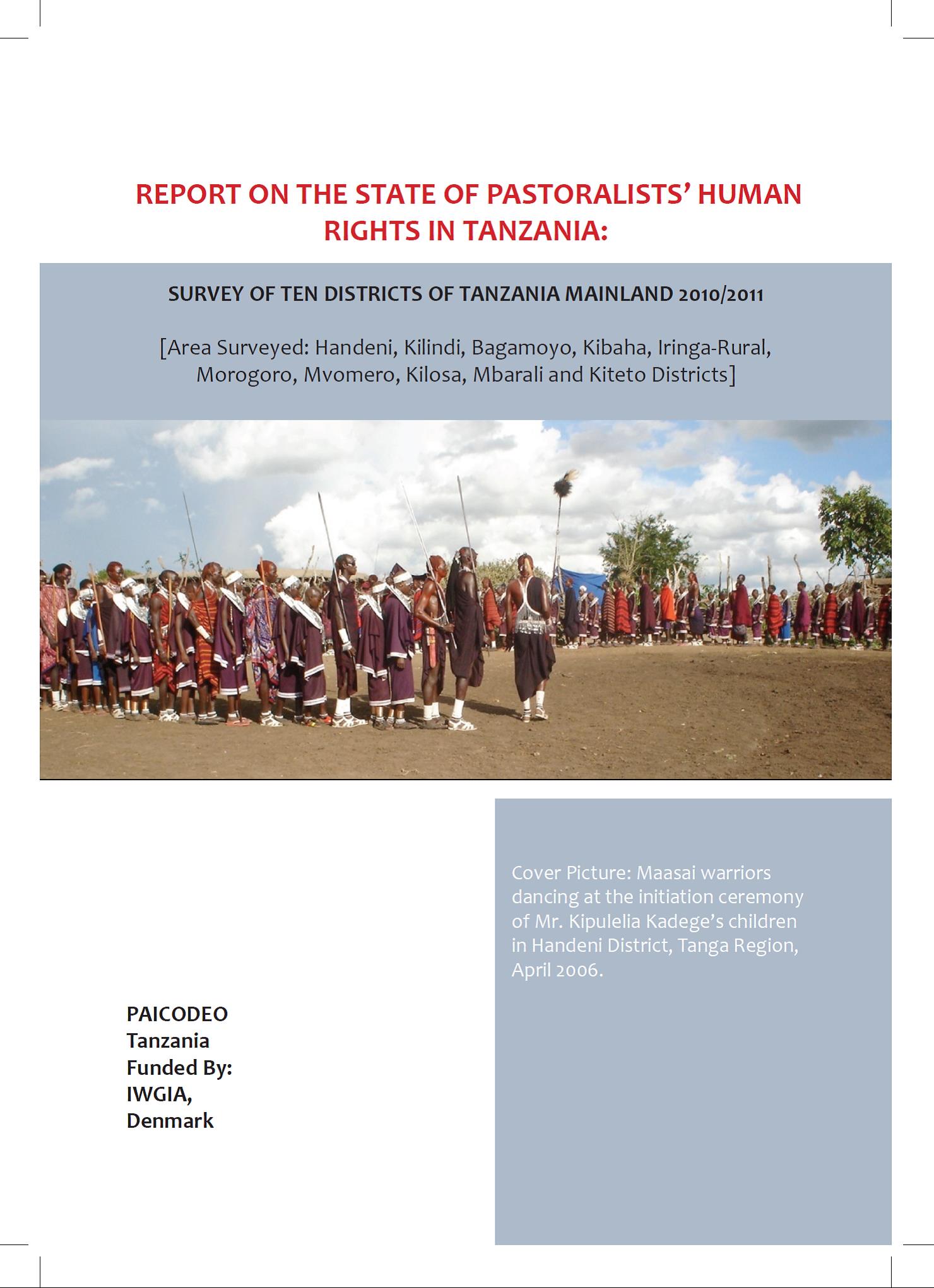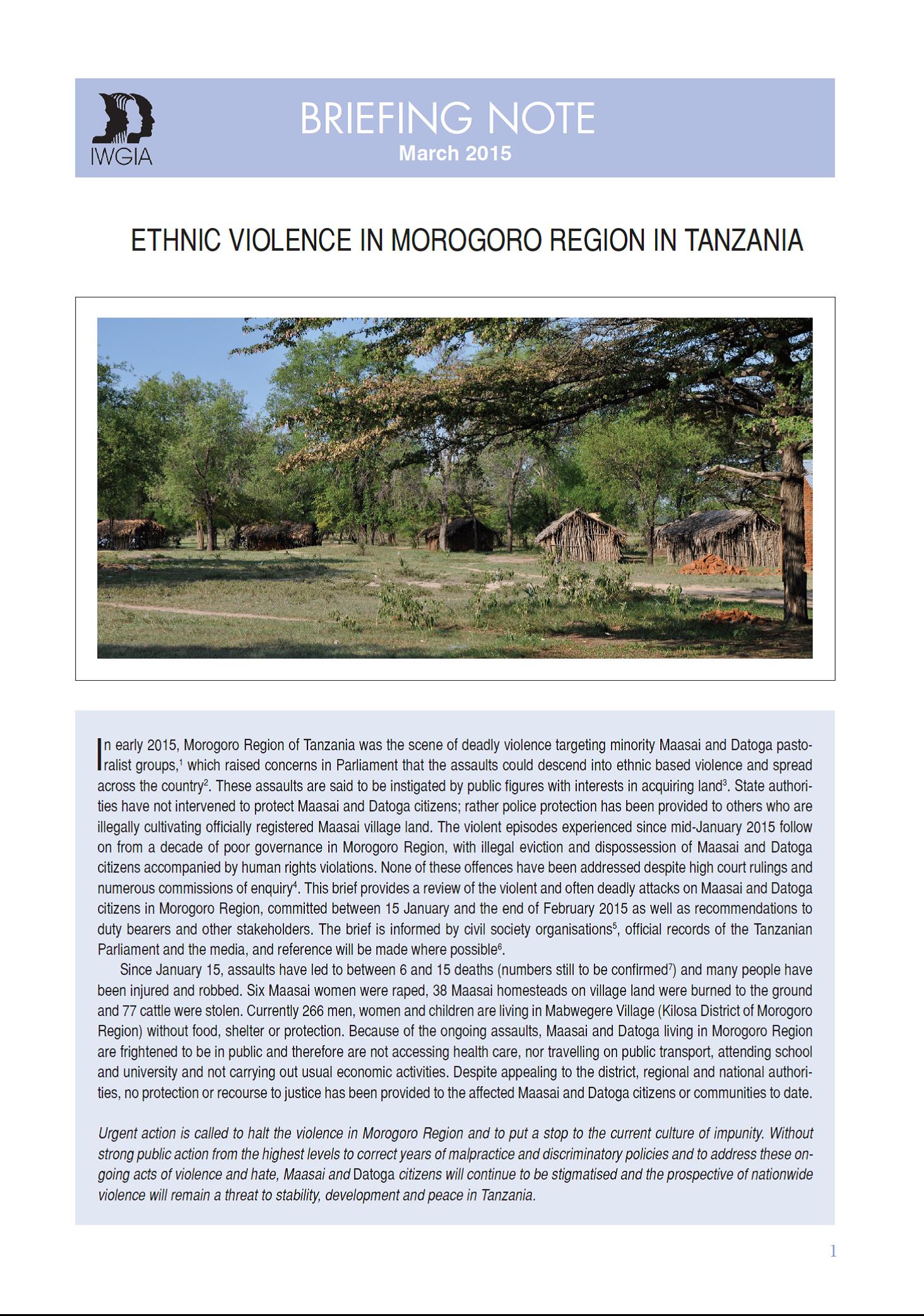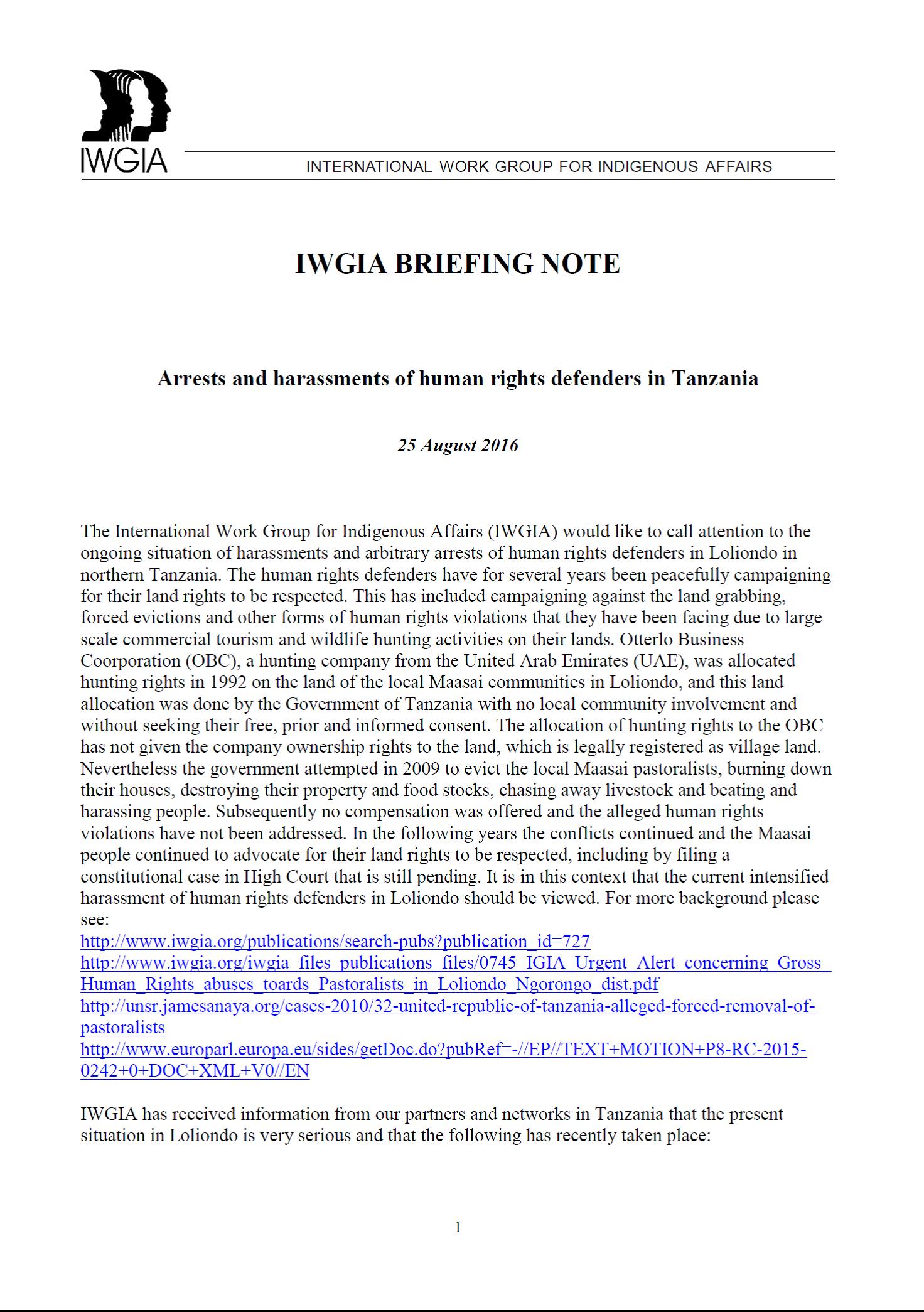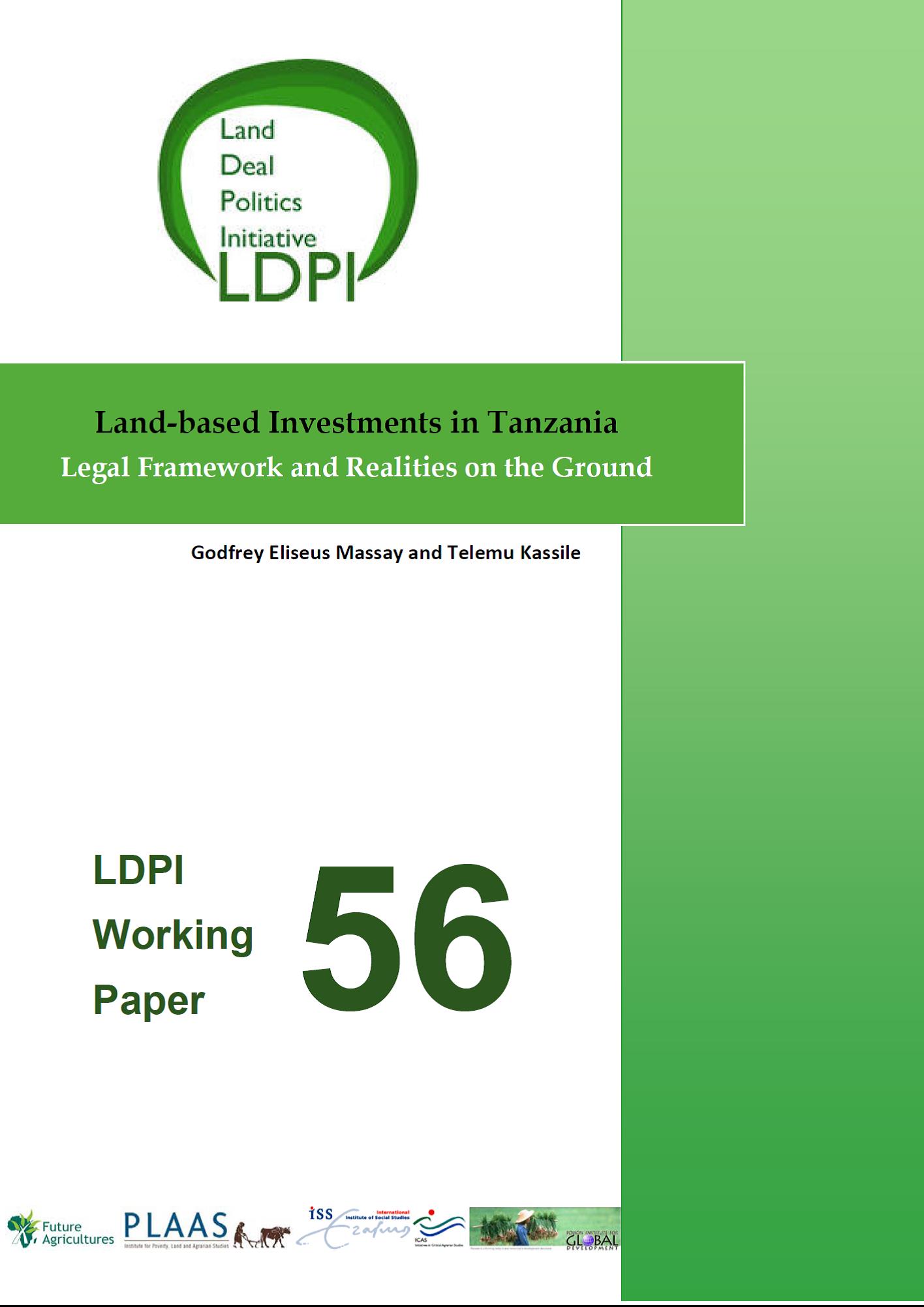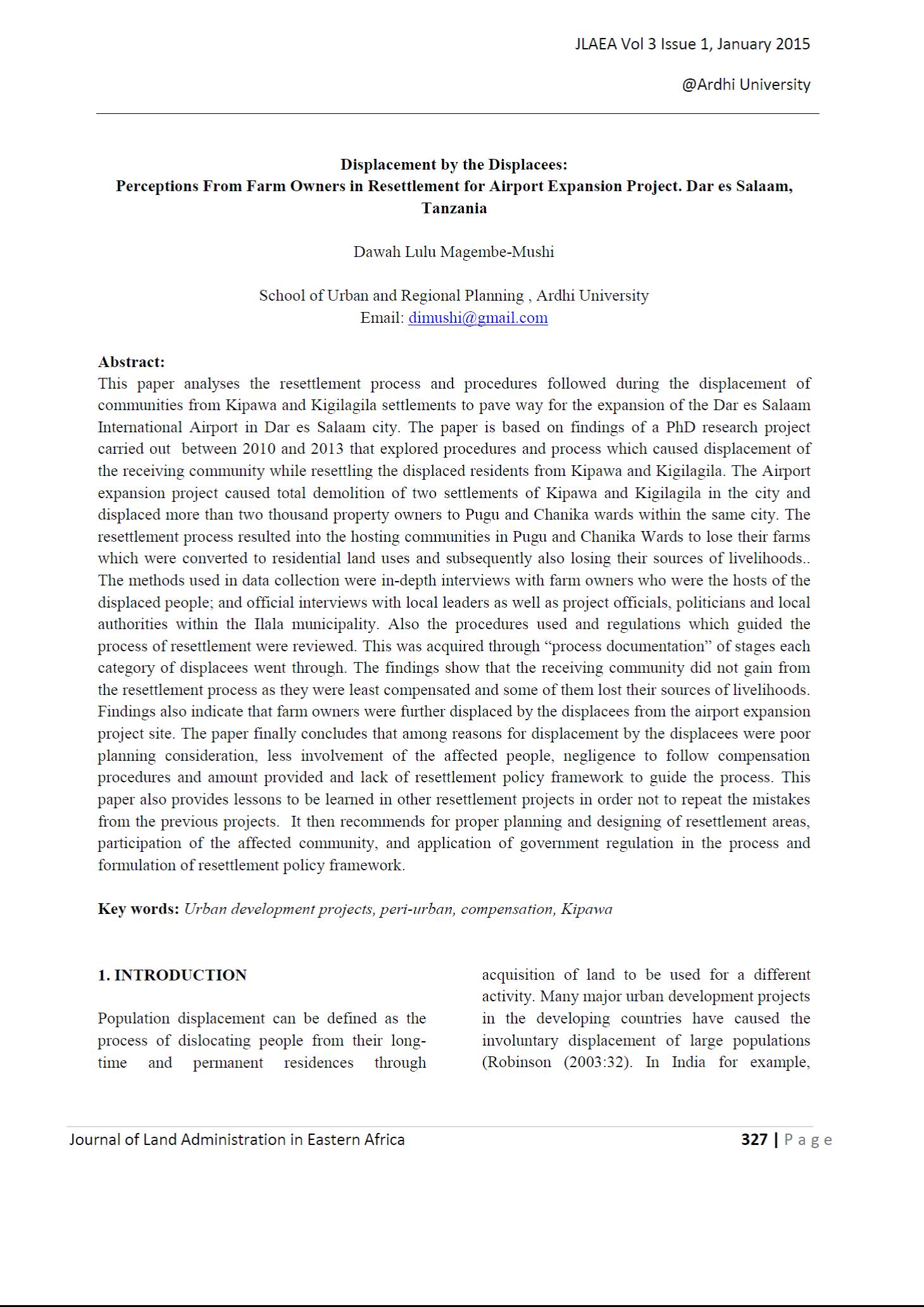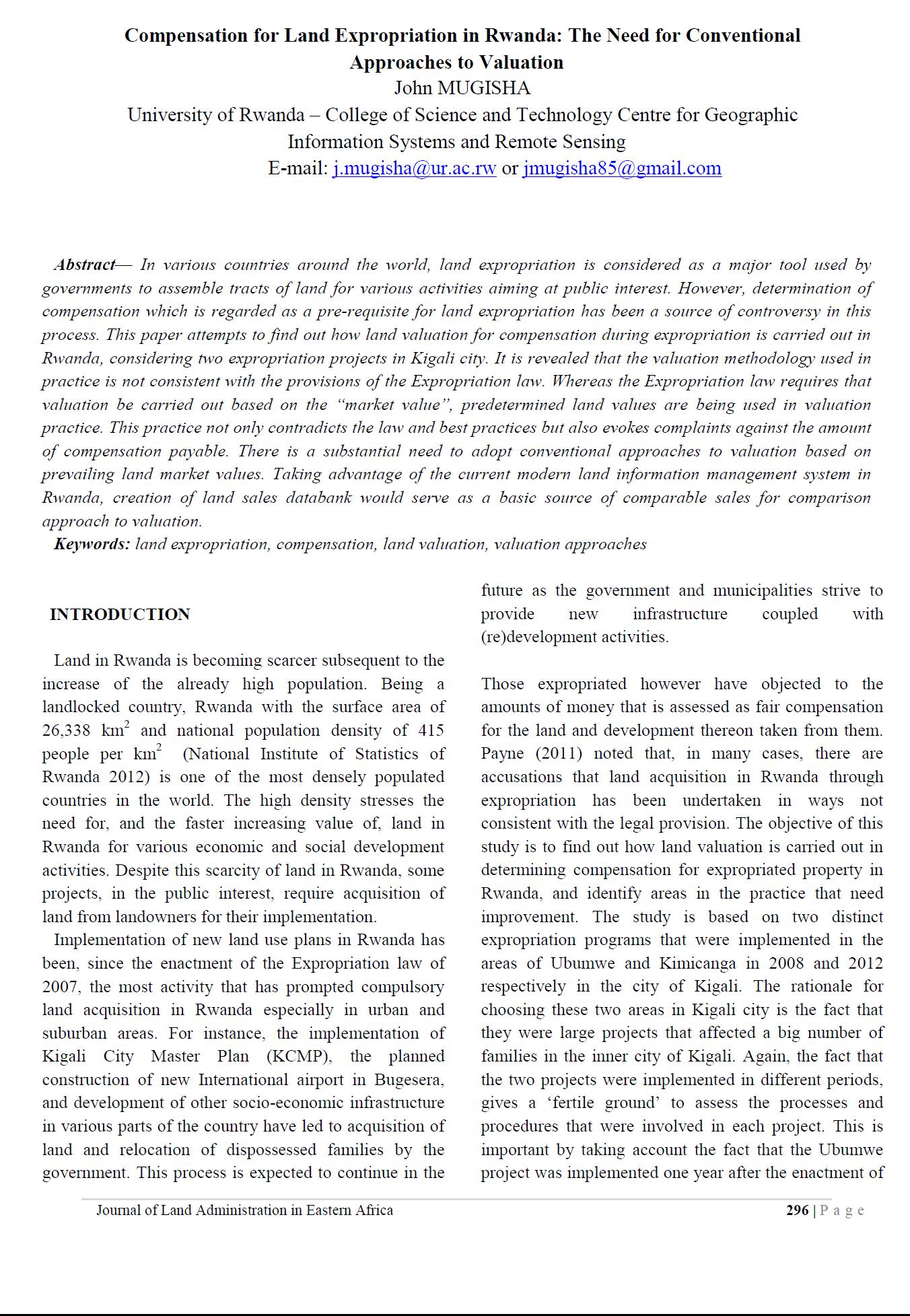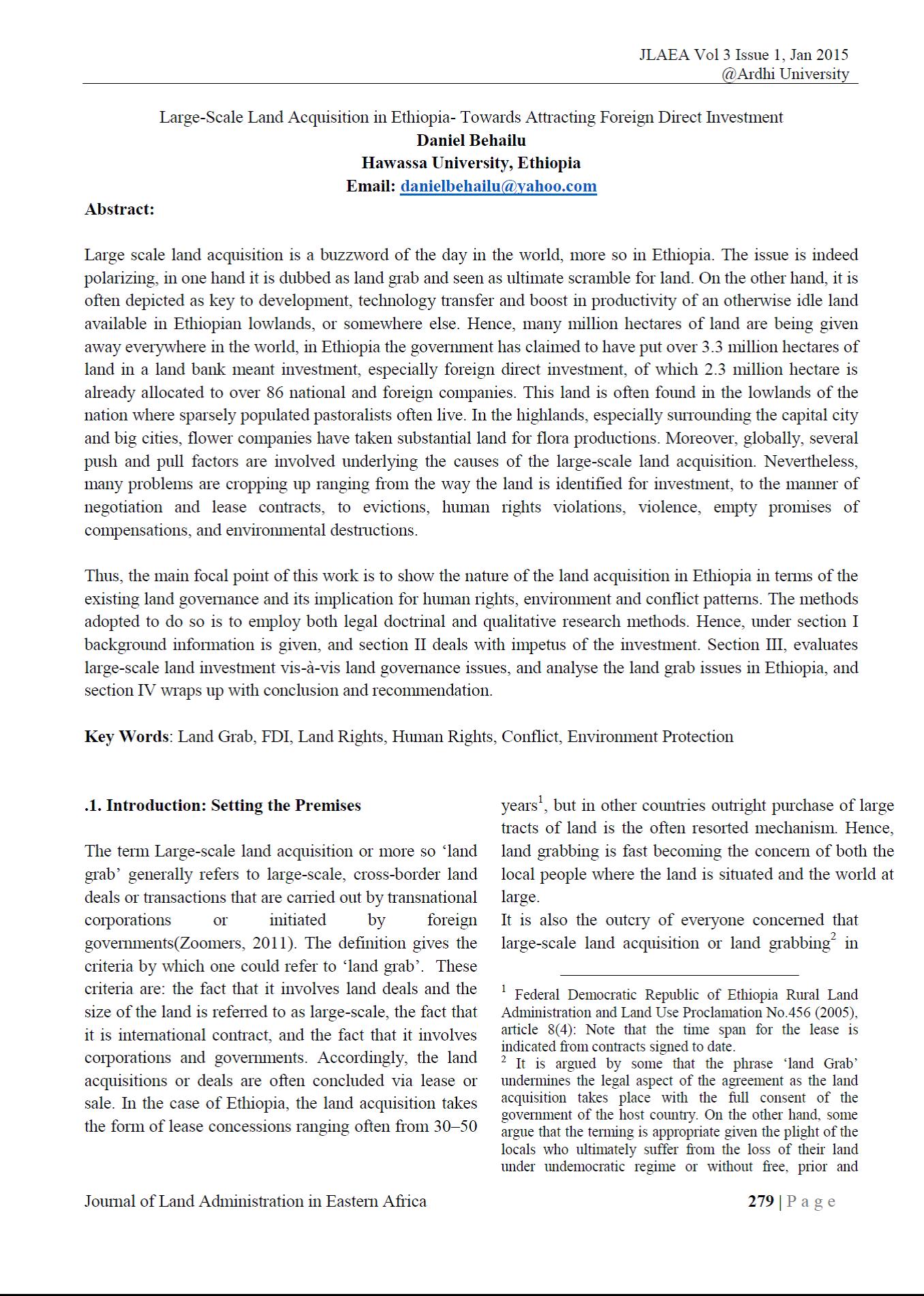Forced Evictions of Pastoralists in Kilombero and Ulanga Disticts in Mgorogoro Region in Tanzania
Parakuiyo Pastoralists Indigenous Community Development Organization (PAICODEO), PINGOs Forum, Tanzania Land Alliance (TALA), the Legal and Human Rights Centre (LHRC) and journalists from ITV, Star TV, Channel 10 and Mwananchi newspaper have conducted a fact finding mission concerning the forced evictions of pastoralists in Kilombero and Ulanga districts in Morogoro region in Tanzania. The fact finding mission was carried out from 12.11 – 15.11 2012.

